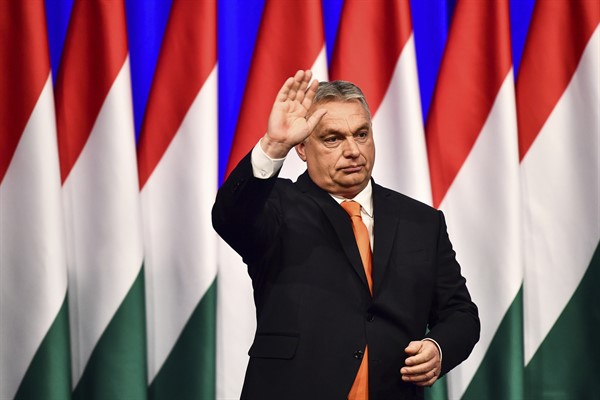Many observers in Brussels will be keeping a close eye on this Sunday’s general election in Hungary for an early indication of how much European far right leaders’ ties to Russian President Vladimir Putin could affect their domestic political fortunes. But they are under no illusion about the seemingly united opposition’s slim odds of wresting power from Hungarian Prime Minister Viktor Orban, who has manipulated the political landscape and electoral process to his benefit.
After 12 years of playing themselves off against each other, Hungary’s six opposition parties have united behind a single candidate in this election for the first time ever: the conservative, small-town mayor, Peter Marki-Zay. That helps explain why, over the past three months, the united opposition and Orban’s ruling Fidesz party have been polling in an effective dead heat, with Fidesz’s slight lead falling within the margin of error. But despite Orban’s close relationship with Putin, his polling has actually improved slightly in the month since Russia’s invasion of Ukraine. Hungary remains an outlier among its neighbors when it comes to public opinion on Putin: A poll last year found that 43 percent of Hungarians have a positive view of the Russian president, compared to just 10 percent of Poles and 25 percent of Czechs.
Orban has accomplished this largely by keeping some distance from Putin since the start of the Russian invasion and by not standing in the way of European Union sanctions against Moscow. He has likely done this not only because of the upcoming election, but also to avoid jeopardizing his “Visegrad Four” partnership with Poland, Czechia and Slovakia. Warsaw, in particular, has been a dependable ally in both countries’ disputes with Brussels over rule-of-law issues.

